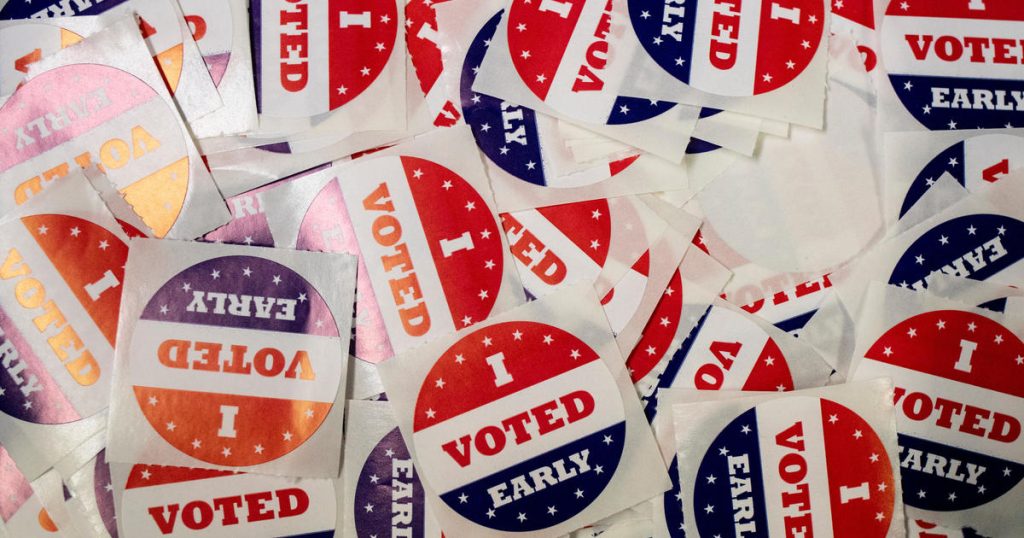As the 2024 election approaches, the majority of voters across the country will have the option to cast their votes early either in person or by mail, depending on their preference. States like Alabama began sending out mail-in ballots on Sept. 11, with 10 states allowing mail ballots to be sent more than 45 days before Election Day. Some states will also start early, in-person voting in September. Each state sets its own voter registration deadlines, with military and overseas ballots to be mailed by Sept. 21, 45 days before Election Day. The accessibility of early voting options has drastically increased since 2000, with 97% of voters now having at least one option to vote before Election Day.
Forty-six states and the District of Columbia offer early voting options to all voters, with several states also allowing mail-in ballots for all registered voters. These include states like Alaska, California (all-mail election), Colorado (all-mail election), and others. Some states require an eligible reason to vote by mail, such as Connecticut, Indiana, and Kentucky. Meanwhile, four states do not offer early voting to all voters and require an eligible reason to vote by mail, including Alabama, Mississippi, New Hampshire, and West Virginia. The map provides a comprehensive overview of the early voting options by state for the 2024 election.
In battleground states across the country, the race between Vice President Kamala Harris and former President Donald Trump is tight. Polling in states like Michigan, Wisconsin, and Pennsylvania shows a close race, with both candidates tied or separated by no more than 2 points. The battleground states are likely to determine the outcome of the presidential election, with estimates regularly updated by organizations like CBS News. Harris and Trump are scheduled to participate in debates in key cities like Philadelphia and New York, with their running mates also engaging in debates hosted by CBS News.
Both Republicans and Democrats are preparing for potential election challenges, with teams of lawyers assembled to address any voting disputes that may arise. Since 2020, multiple counties in various states have attempted to block the certification of their elections, including battleground states like Arizona, North Carolina, and Pennsylvania. In 2024 alone, officials in Nevada and Michigan have faced challenges in certifying local races, indicating potential issues following the presidential election. Despite efforts to encourage early and mail voting among GOP voters, former President Trump continues to cast doubt on the validity of mail-in ballots and raises concerns about election fraud.
In Georgia, the state election board recently approved rules that empower local officials to question the election before certifying results. The certification process officially ends the canvassing of ballots, with deadlines set for November 12. The new rules could potentially delay the certification of presidential election results beyond the deadline, as political appointees seek to expand the role of county officials in certifying the vote. Concerns about election integrity and fraud persist, with both parties taking measures to address and anticipate potential challenges in the upcoming election cycle.


